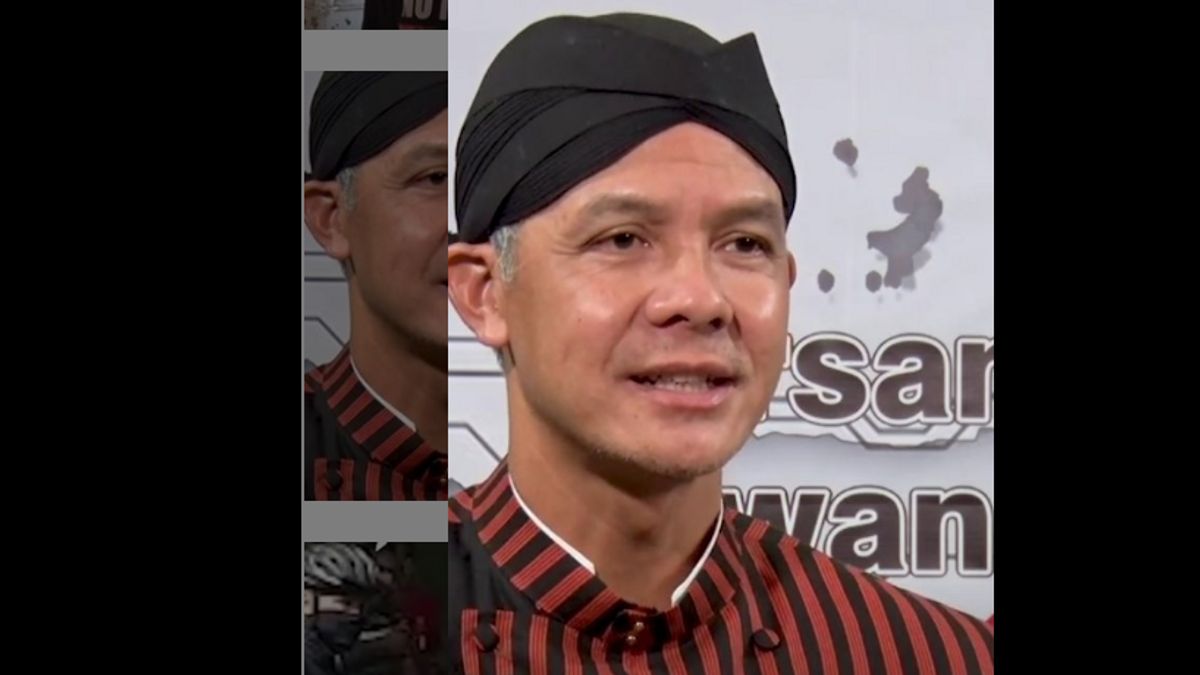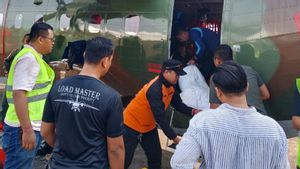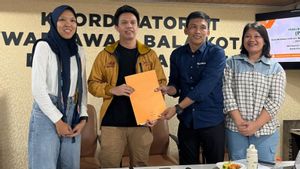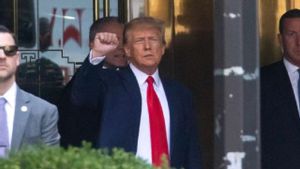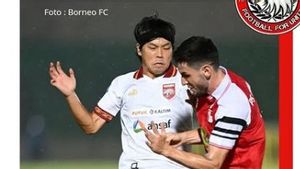JAKARTA - The Large-Scale Social Restrictions (PSBB) are a step to reduce the spread of COVID-19. However, this method will only be implemented if the local government submits it and gets approval from the Ministry of Health.
However, in some areas PSBB was not used, they used other or alternative methods. Several ways to regulate community mobility so as not to be infected or transmit the virus, among others, Restrictions on Community Activities (PMK), Regional-Scale Social Restrictions (PSBR), and Merdesa.
For the Restriction of Community Activities (PKM), this method is widely used in areas of Central Java. Only the city of Tegal has implemented the PSBB as a measure to prevent COVID-19.
Java Governor Tegah Ganjar Pranowo said that basically the PKM and PSBB regulations are not much different. However, the most important thing is more about literacy related to COVID-19. So, handling and prevention will run well
"Actually PSBB or PKM, or nothing, actually what is needed today is sufficient literacy about COVID-19," said Ganjar in a discussion of the Task Force for the Acceleration of Handling COVID-19 at Graha BNPB, Tuesday, May 19.
In the application of PKM regulations, said Ganjar, the provincial government (pemprov) did not force the heads of district or city governments to follow them. They were given the freedom to choose and offered to implement the PSBB.
However, with a note that you must consider the risks and things that must be prepared in the application of the PSBB. Because, to face this pandemic, creativity is needed.
"If the PSBB is considered a good way, I always tell the Mayor and Regent to calculate several aspects around it, especially social aspects," said Ganjar.
This freedom is proven by only the city of Tegal which implements the PSBB. Then, it is likely that the Wonosobo area will also follow because the number of positive cases is growing rapidly.
This is because many of the distributions originate from the Ijtima Gowa cluster. If traced backwards, this spread originated in people who were infected by following the Ijtima Ulama in Bontomarannu, South Sulawesi, around March 2020.
"Wonosobo seems to want PSBB because suddenly there has been a quite high (Covid-19) increase, because of the spread of Gowa alumni and it turns out that this has also infected those to Purworejo, we also saw around Temanggung, Brebes, and so on," said Ganjar.
The second method is using Regional-Scale Social Restrictions (PSBR). This method is used to monitor and limit the movement of people in relatively small areas, for example, Central Maluku District.
A volunteer at Rohomani Village, Pulau Haruku District, Central Maluku, Abdul Wahid Sangadji, said that this rule prevents local people from moving from one island to another. So, the spread of COVID-19 can be further resolved.
"Carrying out the PSBR Regional-scale social restrictions. So the restrictions are from one island to another," said Abdul.
However, there is a negative side to implementing this rule. During the three periods it was implemented, the economic impact was felt the most because people could not leave the island. It is noted that in Central Maluku this rule has been implemented since April 17 and has passed two extensions until May 29, 2020.
"One of the things that can have an impact is definitely the economy. The community is again cutting down sago trees as a basic need," said Abdul.
Finally, the use of the Merdesa method. The concept called combining the capacity of the village government with the social capacity of the village community to cope with the plague was applied by the Panggungharjo Village Government in Bantul, Yogyakarta Special Region.
Panggungharhjo Village Head Wahyudi Anggaro Hadi said that in dealing with the spread of the virus, the government and villagers formed a COVID-19 Task Force, mapped the impact of the outbreak, and mitigated social impacts since positive cases first appeared.
"We have created a volunteer stage for COVID-19 since President Joko Widodo announced the first case," Hadi.
Then, the volunteers are tasked with conveying their understanding of limiting social activities and preventing transmission of COVID-19. In addition, providing information about what is prohibited and permitted to do during the COVID-19 pandemic
"There is a common perception related to this kind of situation. That don't panic but don't ignore it," he concluded.
The English, Chinese, Japanese, Arabic, and French versions are automatically generated by the AI. So there may still be inaccuracies in translating, please always see Indonesian as our main language. (system supported by DigitalSiber.id)
